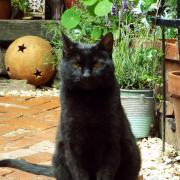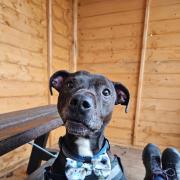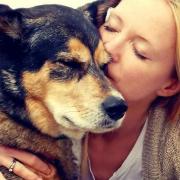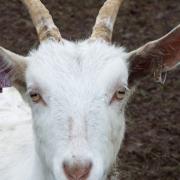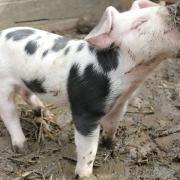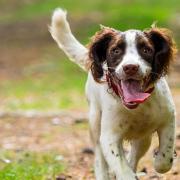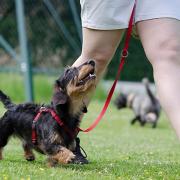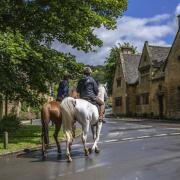For 46 weeks of the year, Cotswold veterinary surgeon Tim Brazil’s patients are the sports and pleasure horses of this area and beyond. But for the remaining six it is the working equines of developing countries, like India and Egypt, that demand his attention. Debbie Graham spoke to him about his work.
Tim is a recognised European specialist in equine medicine and has a PhD in equine respiratory diseases. He runs a second opinion practice from his base in Moreton-in-Marsh and his expertise is sought all over the country.
Seven years ago, he became involved with The Brooke, an equine charity that was begun in 1934 by Dorothy Brooke as a response to seeing the plight of the working horses in Cairo when her husband was stationed there. Eighty years later it is still just as dedicated to improving the welfare of working equines through education, community projects and veterinary treatment, and operates throughout Asia, Africa and Latin America.
How did you become involved with The Brooke?
They approached me in 2007; somebody I knew worked for The Brooke and thought I would have the right interest and background. I was really chuffed to be asked and jumped at the chance.
Tell me about your role.
My work to date has been in Egypt and India, two of their largest programmes. The Brooke employs local veterinary teams within communities and when I visit I look at their veterinary operations to see how we could change and improve them; like should we be helping them get different or better drugs? Should we be obtaining different or better equipment?
I also look at how we can improve animal welfare and how the veterinary teams work with the animals, in terms of examination, investigation and diagnosis. For example, ‘look these guys are doing a really good job but more training in this aspect of lameness evaluation or on eye diseases would really help them develop the service.’
What is special about the charity?
They do great things in the field to really make a difference to the health and welfare of working horses, mules and donkeys. The people who work with these animals are some of the poorest communities in developing countries and it isn’t just about healing sick animals, although that is a big part of it. A lot of it is about preventing problems and improving welfare for animals so they are healthier and work better, so they improve the livelihoods of those people who own them.
How does it all work?
There are different models in each country. In Egypt they have a series of six or seven clinics that people can attend. But these clinics also have mobile teams that go out into the community. For example once a week they will go to a village they have recognised as a high-risk area in terms of the type work and the welfare status of the animals. There they will treat sick animals and give advice on welfare, farriery, saddlery, cleaning wounds etc. In India they run a purely mobile service on an emergency basis.
In the districts where Brooke works owners can contact them and a Brooke Team will come out and see your animal, a bit like in the UK. They also do a huge amount education and training with teams in the community in terms of animal health and welfare, from how to look after your harness, to helping provide shade and when to offer water or even helping to build water troughs. Also, a lot of disease prevention advice through the development of community equine welfare groups. It is all free and funded by charitable donations.
How difficult is it to treat these working animals?
These animals work - a lot! Perhaps even 16 hours or more a day with little or no breaks for water. During the working day, the longest period of time the animal is going to have off is when it stops for a Vet to examine it and then it will go straight back to work. There is no time-off or box-rest; if you mentioned that to the owners they would look at you like an alien from another planet; it’s a different world.
When people in the UK, particularly horse owners, see these things they think it is absolutely dreadful how they treat their horses, but what they don’t recognise is very often these people are no better off themselves. Therefore, you have to be careful how you manage these cases. If you have a horse that is a bit lame, you think we could make it more comfortable if we could give it some painkillers for a couple of days. But then the owner might think, ‘Oh my horse is working well today I will stick another 50 bricks on its back and earn a bit more money.’ These animals are a means of survival for that person and his family; maybe four or five family members entirely dependent on the earning capacity of a single pony or donkey. Many of them will love their animals but have not got two beans to rub together.
What are the most rewarding parts?
Two things; helping with training some of the vets out there so they can improve their practice and make a big difference to what they do. The second is on a welfare basis. When you visit an area with all sorts of problems with their animals and then you go back a few years later and you can recognise that there has been a change in the community; that the animals are healthier and the people are happier.
I feel very strongly about this charity. You do see positive benefits as ever even a small amount of care for an animal is usually paid back in spades.
For more information on what The Brooke do and how you can help visit www.thebrooke.org







